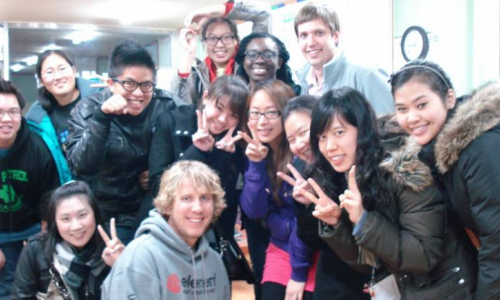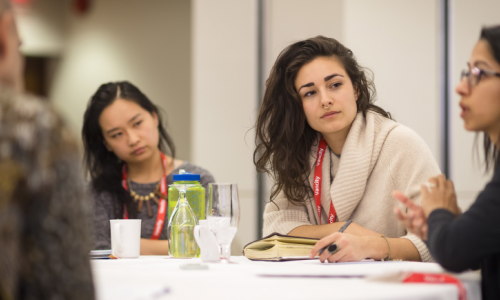
I thought that my year could not get any worse, but I was wrong. First, there was the spread of COVID-19 which incited panic and fear amongst the community. Second, there were racialized media coverage on the Asian community, which led to a rise in hate crimes. And last, but not least, people are losing their jobs. A lot of people.
Some of you may have lost your jobs during this time, or your recent hire may be delayed or cancelled, or your job may have shifted online. I’m in the same boat. I just recently lost my job as well, so I know how you feel. My heart goes out to everyone who’s struggling to put their life back on track.
These quick and unexpected changes can be frustrating, leaving you feeling angry, sad, or overwhelmed. It’s fair to give yourself a little time to get those feelings out of your system. What I didn’t know then that I know now is that you can, and you will be able to recover from this.
Although the situation sucks, and it seems like there’s nothing you can do about it, try to keep an open mind. It’s hard to see the light at the end of the tunnel when your judgement is clouded, but trust me, there is light at the end of the tunnel.
If you have lost work due to COVID-19, there may be the opportunity to return to your work and to obtain some of the benefits offered by the government in the interim. The government is regularly announcing new programs, initiatives and compensation. For my situation, it was both a learning experience and an opportunity to pivot.
Before trying to get back on your feet, you should consider the following questions:
-
Is my goal to return to the same type of work? Or different
-
What is the current job market and how is it changing?
-
What types of skills could I develop?
It’s always good to start brainstorming some questions to ask yourself in order to guide your journey onto the right path. I know a lot of you are struggling to pivot so quickly, so here are some tips to make job-hunting an easier process:
1. Evaluate Your Skill Set
Identify what are your current skill sets, and what skills you want to supplement during your unemployment period. Doing so will not only allow you to have a semblance of the norm but also get you back on track to being productive and practicing your skill sets to ensure that you’re always on top of your game.
2. Focus on Job Descriptions
Look at job postings that you want to apply for and review their requirements. This is probably the most important step in the job-hunting process. By looking at the requirements and qualifications of the jobs that you want to apply for, you will be able to take the appropriate action for your next steps. Most likely, the work requirements and qualifications will look slightly different due to changes in the work environment as a result of COVID-19. There might be an emphasis on remote work, skills related to project management, organization, time management as well as a preference for online portfolios. Here are some of the helpful online resources that can give you more insight on how to analyze job descriptions, ways to improve your chances of getting hired, or accurately read beyond the job descriptions.
3. Develop Your Skills
You can also pick a skill and teach yourself if you’re in no rush to find another job. If you are, there are some skills that you can learn and get a certificate in just a few days. As an SFU student, you have FREE access to LinkedIn Learning. In addition to that, Adobe Creative Suite is offering its programs for free up until the end of May. If you’re not an SFU student, there are numerous free resources online like LinkedIn Learning, DataCamp, Skillshare, Udemy and many others to learn just about anything!
4. Be Realistic
Carefully plan out your schedule, evaluate the time you have and be REALISTIC. I knew it would have to be at least a month before I can become employed again. This is because not only do I have to improve my portfolio by creating new projects, I would also have to improve my resume, write cover letters, apply to jobs, prepare for interviews, and wait to hear back. A big part of job hunting is preparation. If you don’t put in the time and effort into becoming a more marketable candidate, the chances of you getting your dream job will not be high. Visit the OLC Galleries for more resources to further your professional and personal development.

5. Update Your Resume, Cover Letter(s), & Portfolio.
Recognize that there is a shift in the job market as a result of COVID-19. Most likely, the majority of jobs will be focused on remote work and accessibility. Stay up to date with the new trends related to working remotely. For example, recruiters will shift their focus on skills related to the current environment with remote work, highlighting skills such as adaptability, creativity, ability to work with minimal guidance, project management, etc. Therefore, updating your resume, cover letter, and portfolio to prove your work quality and experience is extremely important. Unlike traditional methods of selecting candidates like in-person interviews, employers are now struck with the challenge of selecting candidates through virtual means. This means that it’s harder to accurately gauge one’s ability through video interviews amongst other tools. Therefore, now more than ever, the importance of developing your online portfolio, resume, cover letter plays a dominant role in boosting your chances of getting hired. Along with the rising unemployment, the job market’s more likely to be competitive. By strengthening these areas of professional and personal development, you’re becoming a more competitive candidate. Focus on developing hard marketable skills that you can add to your resume. Additionally, tailor your cover letter to the jobs you wanted by paying attention to their job descriptions and qualifications. Take this opportunity and tailor your cover letters to new job positions, put emphasis on your ability to work remotely, and highlight relevant skills that you have to be able to excel in the changing work environment. Last but not least, you can choose to improve your portfolio by creating new projects, updating your online portfolio, or even updating your LinkedIn Profile.
6. Build Your Network
Now is the perfect time to catch up with your old co-workers, ex-employers, or your old classmates who you really enjoyed working with. They don’t have to be in the same field as you. What they can provide is more connections that could potentially lead to a job. These people can vouch for your work ethics since they have worked with you before and can give you constructive feedback on what you need to work on to be a better candidate. After I was unemployed, I reached out to my previous coworkers to ask them if they know of anyone looking for a graphic designer. In addition to that, I made a new friend with one of my old acquaintances. He’s a designer who graduated and is in the process of looking for a job. I reached out to him, and together we worked on applying to jobs together, as well as building our portfolio. Fortunately for the both of us, there were opportunities to work at SFU OLC and we were both hired on contract at the same time!
7. Be Open to More Ways to Get Experience
This can look in very many different ways. For example, I took the part-time contract at SFU OLC so that I can further build my portfolio, have time to keep applying to jobs and be a part of something big when the new SFU OLC website becomes public. Other examples could be taking an internship position after graduation if it’s taking you too long to get a full-time job. This doesn’t mean that you’re giving up. It’s quite the opposite. Taking on an internship position will give you more experience and time to work on your portfolio and resume. AngelList is a great platform to find remote internships with start-ups if you’re looking to work for a start-up environment. Another direction you could take is volunteering. SFU offers volunteer programs for those who want relevant experience in their field. It’s also a great way for you to connect with others, build your network, and develop your skills in these challenging times.
8. Don’t Blame Yourself, or Your School, Your Major or the Pandemic
Sometimes, timing just really sucks, especially for the graduating class of 2020. It’s really tough right now to find a job but these tips will make yourself more employable in the long-run. Think of the light at the end of the tunnel!
9. Go Digital!
Different companies are still hiring and adapting to working remotely. Adjust the best as you can by applying to jobs online, practice for phone and video interviews using Interview Stream or booking an online appointment with SFU Career Services or your Co-op Coordinator. They’re still here to help you navigate through this journey in your life. In addition to this, update your LinkedIn Profile! Provide an in-depth description of your work experience, network like crazy with other LinkedIn professionals, and showcase your projects in your creative author bio.

10. Don’t Give Up!
This is not even an option. We’re basically living in a chapter of a history book. Take this opportunity to be stronger than ever. You’ll feel practically invincible after achieving your goals. Take baby steps. You don’t need to be too stressed out not knowing where to start. You can take it easy, apply to one job a day, update your resume today, or work on your portfolio tomorrow.
Job hunting can be extremely draining but don’t be discouraged. COVID-19 will NOT last forever. Take small steps every day and be patient. Keep going. It’s just a matter of time until the right door will open for you.
















